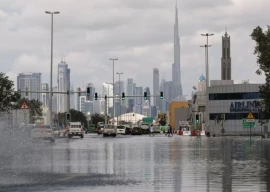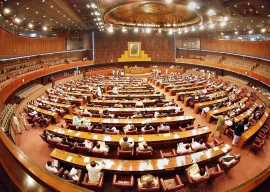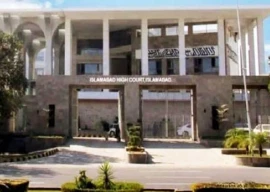
The second UN conference on human settlements, referred to as Habitat II, held in Turkey in 1996, explicitly stated the significance of proliferating urbanisation in developing societies such as Pakistan. Although there is an imperative need to build modern industrial and transportation infrastructure and implement urban renewal policies, certain repercussions are associated with the execution of large-scale development projects.
Poor, vulnerable and marginalised people suffer the most, because their displacement plunges them down the socioeconomic hierarchy in lieu of improvising living conditions through desirable relocation and resettlement plans. Unfortunately, resettlement practices and policies, primarily in our country, are restricted to the realm of providing cash compensation (only to those who have registered properties) without paying heed to all other socio-economic dimensions of life that are affected by being relocated.
Fundamentally, the ongoing project of Lahore Orange Line Metro Train manifests the nexus between urbanisation, development and displacement. There is no doubt that Lahore is one of the most populous cities of Pakistan with the current population approximately earmarked at 10 million. However the pace at which population of the city is expanding, compounded with high migration rates, has led to several challenges pertinent to urban planning and development. One of the bigger problems Lahore is encountering is that it is being gridlocked from end to end. Motorists are caught up in huge traffic jams. Hence, as a panacea, the big-budget project of Lahore Orange Line Metro Train was undertaken by the provincial government.
The Orange Line is a mass transit project which epitomises how development induced displacement is affecting the lives of vulnerable groups, sinking them into depths of pauperisation from which there is no escape. Shopkeepers, hawkers and owners of restaurants, along the route of this mega project, have shared their woes pertaining to demolition of their established businesses. They exclaimed that this particular project has adversely impacted their livelihoods, therefore, making them go deeper and deeper into the deprivation spiral. Correspondingly, laws has also been violated with respect to demolition and acquisition of land — people who had acquired a legal stay order, the developers bulldozed and expropriated their properties as well. The communities that were residing in close proximity of the construction site have all been destroyed along the route. For instance, the demolition has ruined the once vibrant community around Baba Mauj Darya Bukhari’s shrine and has alone displaced, approximately, 10,000 inhabitants of Old Anarkali.
To sum up the discussion, it is apparent that urbanisation, development and displacement are inextricably linked. However, before the implementation of any project it is mandatory for the government to spend considerable amount of time in the planning process through collaborating with citizens and interest groups. It should gauge the subsequent socio-economic costs associated with a project and should implement it in a manner that doesn’t jeopardise the wellbeing of people. If the proposed project poses a considerable threat to the lives of people, then they should be provided with full and timely compensation and in addition to the provision of compensation, the government should take complete responsibility of resettling the displaced communities in the most desirable way, rather than leaving them in a shambolic state.
Published in The Express Tribune, July 24th, 2017.
Like Opinion & Editorial on Facebook, follow @ETOpEd on Twitter to receive all updates on all our daily pieces.










































COMMENTS
Comments are moderated and generally will be posted if they are on-topic and not abusive.
For more information, please see our Comments FAQ